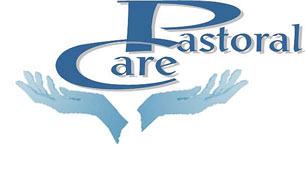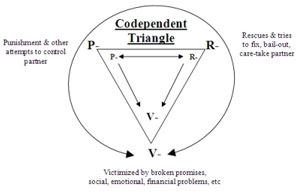Strategies in Pastoral Care for those suffering from Alchoholism.
Topic.
Highlight the strategies a pastoral carer
would use when responding to a call for help from a family with an alcoholic
mother.
Synopsis.
The object of this essay is to highlight the strategies a pastoral carer
would use when responding to a call for help from a family with an alcoholic
mother.
It is hoped that by firstly giving a definition of what
alcoholism is, and secondly by looking at family systems that an understanding
of normal and abnormal family systems may be reached.
As part of any strategy a carer wishes to use there must be
an understanding of the problems that face the family both within and without.
Dangers from the mal-use of family therapy and dangers that
face the carer will need to part also of an overall strategy for bringing about
transformation in any family.
A look will be taken at some of the practical ways in which
a carer can assist not only the alcoholic but the other family members as well.
The issue of Co-dependence will be raised as it pertains to
both the carer and the family of the alcoholic.
Finally transformation will looked at as it acts as a model
for change. Both physical and spiritual arenas will be touched on as the final
product of God’s gracious gift to man.
Discussion.
In order to establish what types of strategies would be
appropriate for a family who is experiencing the type of crisis or stress that
comes hand in hand with alcoholism, it is important to have at hand a model of
how the crisis will proceed.
Such crisis frameworks can be of invaluable worth in highlighting the resource
a Pastoral carer can be to those families invaded by these unwanted, although
all to familiar crisis’s.
There will be a predictable course of adjustment as the
individual and the family unit move through the experience of coming to terms
with alcoholism.
It is only by summonsing both the Resistance and the
Adaptive resources (see footnote 1) of the family and confronting the problem
that a satisfactory outcome can be expected.
Definition of Alcoholism.
What then is Alcoholism?
Depending on one’s view of alcoholism the type of care
offered will differ. However this author agrees with the statement made by
Warner and Bernard (Pastoral Psychology 1982), “Alcoholism is a spiritual
problem, a physical problem, a psychological problem, and an interpersonal
problem”. Treatment of one aspect of alcoholism and not all four is a
disservice to the alcoholic”.
 A typical symptom of alcoholism is loss of control which has
as its complement, a battle for control;
this has the potential to destroy both the alcoholic and their family.
A typical symptom of alcoholism is loss of control which has
as its complement, a battle for control;
this has the potential to destroy both the alcoholic and their family.
As the strategies a carer needs to muster for such a crisis
as this is examined it is important to consider research done by Eshbaugh, Tosi
and Hoyt.
They point out that there are some major differences between male and female
alcoholics. It emphasises that most female alcoholics either fall into one of
two groups. On one hand those with character disorders and on the other those
with neurotic disorders.
Those having character disorders drink possibly because of
poor behavioural control, while those who fit into the neurotic group drink to
medicate themselves rather than seeking professional assistance to help them
cope with the differing crisis’ in their lives.
While they admit that their research is not yet fully
conclusive it can still act as a means by which the carer can see the need for
profession advice and education before making judgements as to which is the
most appropriate method of dealing with those in need.
Alcoholism is most often a gradual problem that either
causes the family to find homeostasis or equilibrium. Equilibrium being the
families endeavours to find stability as the onset of alcoholism grips a family
member, while homeostasis is the attempt of the family to rigidly not change. The latter can
be the most devastating while the alcoholic is trying to achieve sobriety.
There needs to be clear understanding that, “alcoholism is a
compelling plea for help that also carries a covert communication that the
would be helper is as helpless as the alcoholic”.
Murray Bowen would see as one cause of alcoholism in women
especially, the “de-selfing”, of the wife by adapting to the pattern of living
as set out by the husband. That is, the gradual surrender of control of choice,
and identity as the wife takes on the role of being the supporter of the
husband’s career etc, which brings about the loss of her self identity.
It is important that as the carer plans their strategies for
helping the alcoholic wife and her family, that they establish the state of the
family (where everybody is at), and what type of family system they closest
represent.
Finding the true type of family system:
The carer would have to seek answers to the following questions.
Is the family so enmeshed that it unable to see the changes needed for an
individual to survive? Is the family so disengaged that is has little or no
interest in the need of an individual for help? Does the family react well to
the crisis of an individual member and does it seek to individuate it members
while at the same time remaining functional itself?
In other words is the family differentiated enough to face
the crisis and cope alone or does the family require some sort of Pastoral
intervention to allow it to traverse the crisis?
Models of normalcy:
 A truly functional family system which has individuated its
members would be a poor breeding ground for alcoholism, however to say that
alcoholism cannot occur in a functional family is a myth.
A truly functional family system which has individuated its
members would be a poor breeding ground for alcoholism, however to say that
alcoholism cannot occur in a functional family is a myth.
An explanation of this last statement would appear to be in
order because the family system is a living organism. The family system like
the individuals that make up its members is subject to stressors. If the family
system fails at any level to act in an appropriate manner to any of these
stressors then the likely hood of an individual member turning to some type of
dysfunctional behaviour is likely.
Even greater still is the possibility that an individual
member may be subject to a stressor outside the family system and then proceed
to bring that stress into the family system.
The truly functional family would be one which seeks to
individuate each of its members while at the same time be able to cope with the
ever changing nature of the individual members.
Models of abnormality:
 Problems in living are usually viewed as symptoms of a
dysfunctional family system.
Likewise such things as pathological communication patterns coupled with enmeshment
or disengagement, family violence, substance abuse and scapegoating are
indicative of the way in which the major developmental and accidental stresses
of life are mishandled by family systems.
Problems in living are usually viewed as symptoms of a
dysfunctional family system.
Likewise such things as pathological communication patterns coupled with enmeshment
or disengagement, family violence, substance abuse and scapegoating are
indicative of the way in which the major developmental and accidental stresses
of life are mishandled by family systems.
Complementary relationships, where the “alcoholic loser” is
married to the “suffering martyr” are also common.
Extremes of Enmeshment or Disengagement have been seen as
significant variables in the etiology and/or maintenance of antisocial
behaviours, such as, eating disorders and substance abuse like that of
alcoholism.
Tension builds within the family when any of these
pathological tendencies are present, bringing with it an expression of
symptomatic illness. The symptomatic family member e.g. (The alcoholic wife)
will be deemed to be expressing system disturbance.
It will be the shape that the disturbance takes and the way
the family members deal with it, that shapes the way in which a Pastoral Carer
will intervene and bring about transformation within the family.
Positives of Family Systems Therapy.
One of the greatest strengths of family systems therapy is
that a change in the functioning of one family member can bring about a
compensatory change in another family member. Murray Bowen sites the case where
through his intervention with the spouse only of an alcoholic, that the
alcoholic themselves was cured.
Negatives of Family Systems Therapy:
 Family therapy is most useful when there are family crises
such as the abuse of alcohol by one or more members of the family. There are
concerns however, that the possibility can arise where the family receives the
exclusive resources of the carer. In this situation because not all problems
can be construed as a system problem, it is possible for an attitude of, “blame
it on the family”, to be used as a means of avoiding ones own problems.
Family therapy is most useful when there are family crises
such as the abuse of alcohol by one or more members of the family. There are
concerns however, that the possibility can arise where the family receives the
exclusive resources of the carer. In this situation because not all problems
can be construed as a system problem, it is possible for an attitude of, “blame
it on the family”, to be used as a means of avoiding ones own problems.
Another concern highlighted by Jones and Butman is the close
parallel between some radical branches of system therapy and the Marxist ideals
of all for the good of the whole. Here an individual could loose identity at
the expense of the collective. Pannenberg states that the collective view of
person is “sharply opposed to Christian personalism”; the
individual has a unique personal relationship with God.
Locate possible sources of tension in family.
As the carer proceeds to move into a relationship with the
family it will be of utmost importance to find the sources of tension within
the family.
One such source of tension can be a difficulty in expressing
anger in an appropriate manner, especially in interpersonal relationships.
The carer needs to beware of the families attempts to
maintain homeostasis, also there needs to be an understanding of boundaries,
rules, any complementary relationships and any scapegoating that may be going
on inside the family relationship.
It will be by careful analysis of these things that a
correct understanding of the family system will achieved. This highlights the
need for proper education on the part of the carer on how to use the tools at
their disposal to correctly diagnose these issues; otherwise other parts of the
family will not respond to care.
Locate possible sources of tension outside the
Family.
If the source of tension to which the alcoholic is reacting,
cannot be found inside the family system then it is important that all areas of
the alcoholics life be gleaned for possible sources of tension that could be,
the, stressor which has driven them over the edge. Such things as work,
interests, aspirations and interpersonal relationship can be likely sources of
this tension.
Dangers for the Carer.
 Before looking at strategies for the family it would be wise
to make mention of the dangers that a carer should beware of when dealing with
a family gripped by alcoholism.
Before looking at strategies for the family it would be wise
to make mention of the dangers that a carer should beware of when dealing with
a family gripped by alcoholism.
Rodney Shapiro outlines two major dangers as; firstly the carer
being drawn into the role of “referee”, where the family looks upon and vies
for the attention of the carer as a referee. Both the wife and husband seek to
find the support of the carer in their favour. Secondly the carer needs to
avoid the role of “expert”, that is the couple sees the carer as the expert who
has all the answers and all they need to do is follow their advice for their
problems to be solved.
Shapiro would advise the role of facilitator as being the
proper method by which a carer can bring about transformation within the
family.
By opening lines of communication between the family members
and facilitating and exploring areas of blocked communication the carer is able
to remove themselves from the roles of “referee and expert”.
The other area of danger for the carer is the area of
Co-dependence. If they are to avoid this trap there needs to be a conscious
level of understanding as to the carers own motivation behind their involvement
in the helping program.
Strategies for the Family.
 Michael Warner and Janine Bernard posit that the carer
should have as their model for bringing about transformation in the lives of
the family with an alcoholic parent, child or any family member, Kreb’s
therapeutic model of: 1) evaluate, 2) support, 3) refer, and 4) support.
Support is included twice because the type of support required for the family
before and after treatment is undertaken is different.
Michael Warner and Janine Bernard posit that the carer
should have as their model for bringing about transformation in the lives of
the family with an alcoholic parent, child or any family member, Kreb’s
therapeutic model of: 1) evaluate, 2) support, 3) refer, and 4) support.
Support is included twice because the type of support required for the family
before and after treatment is undertaken is different.
Clinebell rightly emphasises the importance of the carer to
encourage the reconnection of the family with their social relationships both
within and outside the church. As a pastoral carer it is important that a good
network of support groups exist in the local church with the possible inclusion
of a pastoral team who are trained in dealing with the problems of alcoholism.
So often just to affirm with the family that alcoholism is
an incurable disease but one that is highly treatable will give the family
great encouragement.
Strategies for the Alcoholic.
 The level of differentiation of the alcoholic will be a
good indicator of how successful any help or treatment will be. Thus it becomes
important as mentioned earlier, to understand their family of origin and how
well or how poorly they themselves are differentiated.
The level of differentiation of the alcoholic will be a
good indicator of how successful any help or treatment will be. Thus it becomes
important as mentioned earlier, to understand their family of origin and how
well or how poorly they themselves are differentiated.
The carer needs to be mindful that while moving towards the
establishment of a relationship with the alcoholic that the alcoholic will be
overly sensitive of any criticism and have a propensity towards denial.
The manner in which the carer proceeds will depend greatly
on whether it is the alcoholic or their spouse that approaches the carer for
help. If for instance help is sort by the spouse then there will remain the
problem of getting the alcoholic to accept that they are in need of help.
However if the carer is approached directly by the alcoholic then the pathway
to helping is greatly facilitated.
Referring back to the research down by Eshbaugh et.al. it
can be seen that the type of treatment and care offered the alcoholic will
differ depending on the cause. Those who are suffering from some loss of
character would need an emphasis on internalised behaviour control, while those
within the neurotic group would need help in anxiety and depression reduction,
these being the main reasons they need to medicate themselves.
One of the greatest helps any carer can have at their
disposal when working with alcoholics is a connection with an Alcoholics
Anonymous group.
Strategies for the Spouse.
 A well documented fact that needs to be carefully watched is
that in many cases the marital relationship will deteriorate with the alcoholic
achieving sobriety.
A well documented fact that needs to be carefully watched is
that in many cases the marital relationship will deteriorate with the alcoholic
achieving sobriety.
In some cases the spouse may develop psychosomatic or
psychological illness after this point is reached.
This is why the carer needs to help the spouse achieve a
personal transformation both physically and spiritually, one which
will help them avoid the reaction to loss of identity that comes from having
spent time as the leader and carer of the alcoholic.
Likewise, guilt is a problem that is experienced as the
spouse is unable to express their own anger. As Shapiro puts it, “it feels
unfair to attack someone for behaviour that seems uncontrollable”.
Much of this help would come in the form of personal one to
one counselling, which would lead to involvement in either an Al-Anon group or some
other support group.
In many ways the wife achieving sobriety will cause within
the family a crisis that is perhaps more threatening to the stability of the
family than the alcoholism it 'self had.
It will be through this process that the spouse and other family members must
navigate as they redefine themselves without a sick or drunk member.
In caring for the spouse there needs to be an affirmation of
their accepting the alcoholic as having a sickness and a need to release
themselves from any responsibility of protecting, curing or being responsible
for their behaviour.
This releasing means letting go emotionally and giving up all attempts to
control or protect them from the consequences of Alcoholism.
Clinebell believes a general principle that should act as a
guide for the family of the alcoholic is to “avoid both punishing and
pampering”.
This will only further alienate the alcoholic from those who are best placed to
help them.
Strictly on a practical level the carer needs to have
available a list of resources that can be used by the spouse to cope with the
everyday problems of life, such as, child care, clothing and feeding children.
These types of resources are invaluable to a spouse who must work to meet the
day today expenses of living.
In other words what community organisations are there and what services do they
supply.
Strategies for the Children.
 The children of alcoholics are in many cases deprived of the
emotional security that should be forthcoming from their parents and as such are
in need of the same help as the spouse. In addition the children of alcoholics
are in danger of becoming scapegoats for the family, so as to try and explain
away the behaviour of the alcoholic themselves.
The children of alcoholics are in many cases deprived of the
emotional security that should be forthcoming from their parents and as such are
in need of the same help as the spouse. In addition the children of alcoholics
are in danger of becoming scapegoats for the family, so as to try and explain
away the behaviour of the alcoholic themselves.
So often they can become innocent bystanders as the rest of
the family becomes blind to their own contribution to the families dysfunction.
The children, irrespective of age need to be networked into
support groups within the body of the church, be they AL-Anon or some other
group set up for this purpose.
A pastoral carer should make all attempts at making a personal relationship
with the children a priority so as to be able to be available for ongoing crises
in their lives.
Research shows that dependency desires of children of an
alcoholic parent are both inadequate and erratic. This
frustration for basic needs can lead at some point in a person’s life to the
acceptance of alcohol as a compromise solution to a developmental or accidental
crisis.
The carer needs to be attentive for any form of
Co-dependence on the part either of the spouse or any of the children.
Problems of Co-Dependence.
A danger that the carer needs to aware of and make
allowances for is co-dependence. That is when one or more members of a
family system derive their own personal identity from the caring of others. Jackson defines the co-dependant
person as one who “shares a lifestyle in which most personal meaning and value
is derived from others”.
It appears that families that have a rigid set of autocratic
rules are more susceptible to rearing co-dependent children. It should again emphasised
the need for the carer to have good lines of communication open with the
children of alcoholic parents.
This as mentioned earlier is a problem that carers
themselves need to be aware of.
Transformation as a Paradigm of Change.
What then is the outcome to be sort by the carer in any
situation, such as that of working with a family with an alcoholic wife and mother?
Firstly, there has to be as part of an overall strategy the desire to move both
the alcoholic and the family from a point (one of turmoil & conflict) to
another point (one of wholeness both physically and spiritually). The recovery
for an alcoholic and the family will “include healing in physical,
psychological, and social aspects as well as healing and nurturing spiritually”.
An important consideration for any pastoral carer is how
deep they will go into a ministry like this. Will they only deal with the
occasional family that crosses their path or will they take the step of
encouraging their own church to become involved in the ministry to the families
of alcoholics.
This author would suggest there is a dire need for this type
of ministry in as many churches as possible, because it is an area where Christ
himself would have been found.
There are however many considerations that need to be made
before a pastoral team of this kind could to trained and put into operation.
Robert Bremmer has written an excellent article on the some of the
considerations that need to be faced before such a program should be
established in any environment.
The value of this type of article is to highlight the dangers in a “bleeding
heart” approach to working with families such as these.
Any strategy the pastoral carer uses must be thoroughly
worked out and thought through. To start to work with these families it must
always be kept in sight that the goal is transformation and not as already
mentioned that of fulfilling some sense of Co-dependence on the part of the
carer or carers.
Physical Transformation.
The first form of transformation will be physical and
obvious by the changing face of the family as not only the alcoholic but the
individual members of the family system come to terms with the problem and learn
to deal with it in an appropriate manner. If for instance violence was common
in the home it would be expected that this would be dissipated. The physical
health and fitness of the family would also be improved as they individually
and corporately learn to care for their bodies.
Spiritual Transformation.
 However by far the greatest transformation would in many
ways be unseen, it lies on the spiritual plane. Herein is
the value of programs such as Alcoholics Anonymous, the twelve steps to
spiritual wholeness,
which have been adapted by groups such as Al-Anon to be of benefit for the
family as well. This transformation is the taking of life that is experienced
at a level less than the creator had intended and giving to it a state of
wholeness that is in harmony with every aspect of Gods creation. The central
theme of the twelve step program is healing. By working the twelve steps people
are able to reclaim their birthright as children of a compassionate God. It
focuses on a new relationship with God that transforms people's obsessive needs
to cope with the struggles of life.
However by far the greatest transformation would in many
ways be unseen, it lies on the spiritual plane. Herein is
the value of programs such as Alcoholics Anonymous, the twelve steps to
spiritual wholeness,
which have been adapted by groups such as Al-Anon to be of benefit for the
family as well. This transformation is the taking of life that is experienced
at a level less than the creator had intended and giving to it a state of
wholeness that is in harmony with every aspect of Gods creation. The central
theme of the twelve step program is healing. By working the twelve steps people
are able to reclaim their birthright as children of a compassionate God. It
focuses on a new relationship with God that transforms people's obsessive needs
to cope with the struggles of life.
In conclusion, it is here that a pastoral carer has within
their reach an enormous wealth of help and assistance as the twelve step
program has been tailored to meet the needs of not only alcoholic parents and
their children but also the need of those suffering with a varied assortment of
emotional and addictive behaviours.
Bibliography.
Bremmer, Robert, “Starting an Alcohol Treatment Program:
Ethical Considerations”. The Journal of Pastoral Care.
Volume 48 No4 (1994) 384-201.
Clinebell, Howard J. Jr, Understanding and Counselling
the Alcoholic. (Abingdon Press: New York, 1968).
Eshbaugh, Dennis M., Tosi, Donald J. & Hoyt, Charles
N., “Women Alcoholics” Journal of
Studies on Alcohol. Vol 41 (1980) 310-317.
Jones, Stanton
L. & Butman, Richard E., Modern
Psycho-Therapies. (Intervarsity Press; Illinois,1991).
Massey, Denise McLain, “Addiction and Spirituality”. Review and Expositor. Volume 91 (1994) 9-18.
Mullen, Paul M. & Hill, E. Wayne.,
“A Family Systems Model for Pastoral Care and Counselling in Times of Crisis”.
The Journal of Pastoral Care. Volume XLIV No 3
(1990) Fall 250-257.
Reid, John, Class Notes for Pastoral Care A. Transformation
as a Paradigm for Pastoral Care.
Footnotes.